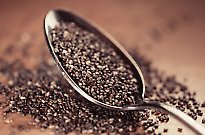
The benefits of fasting
The benefits of fasting

When we eat, energy is stored as glycogen in our muscles and liver. It is only after 12 to 18 hours that this glycogen becomes depleted and we turn to stored fat for energy. This burning of stored fat to power both our bodies and brains is called ketosis, and elicits positive hormonal, metabolic and cellular changes. Here are some of changes that studies have shown can occur in the body and brain during or after fasting:
Better fat-burning and improved weight loss
Natural fat burning is enhanced once you enter a fasted state, but this efficiency is also boosted after you begin eating again. Fasting encourages an increase in secretion of Human Growth Hormone, which is important for fat burning as well as retention of muscle mass. Encouragingly, there is some evidence to suggest that intermittent fasting results in a higher proportion of body fat loss than continuous calorie restriction. Fasting helps regulate ghrelin, a hunger-signalling hormone, allowing you to better tune into appetite and facilitate weight loss.
Reduced risk of type 2 diabetes
Research has shown that even just one day a week of fasting may reduce the risk of diabetes in high-risk individuals. With lowered blood sugar levels, insulin also drops significantly, reducing insulin resistance. In the same way that exercise makes your cells more efficient in taking up glucose from the blood, fasting may also improve insulin sensitivity. However, there may be some differences between genders. One study showed that women who undertook intermittent fasting for three weeks actually had reduced blood sugar control.
Increased immunity and longevity
Oxidative stress is associated with the production of free radicals that in turn damage cell proteins and DNA, promoting disease and speeding the ageing process. Research shows that intermittent fasting may enhance the body’s resistance to oxidative stress, while also helping reduce systemic inflammation, the key driver behind many diseases. More recent studies suggest that fasting may also help ‘reboot’ the immune system, encouraging regeneration of new immune cells and removal of old ones, in a process that may be protective against the damage of ageing and even chemotherapy. Of course, one of the big pluses to fasting is that by default you avoid overindulging, especially in the foods we know are damaging to health – overly processed and refined foods that induce inflammation.
Improved brain function
Intermittent fasting may encourage the growth of new nerve cells, providing a boost to brainpower. It also increases levels of a brain hormone called brain-derived neurotrophic factor (BDNF), which in turn sparks release of other chemicals beneficial to brain health, helping protect against neural changes linked with depression, Alzheimer’s and Parkinson’s diseases.
Reduced risk of cancer
Fasting creates an adaptive stress response that helps the brain and body cope with disease. Promising research in animal studies indicate that intermittent fasting, and the resultant changes to metabolism, may help prevent some cancers and/or slow tumour growth. There is also some evidence to suggest that fasting reduces various side effects of chemotherapy in human cancer patients.
Heightening of senses
Fasters commonly report having a very strong sense of smell and hearing, especially during a longer-term fast. It is also common for people to report heightened emotions and feelings such as gratitude, empathy and clarity about life direction and purpose.















